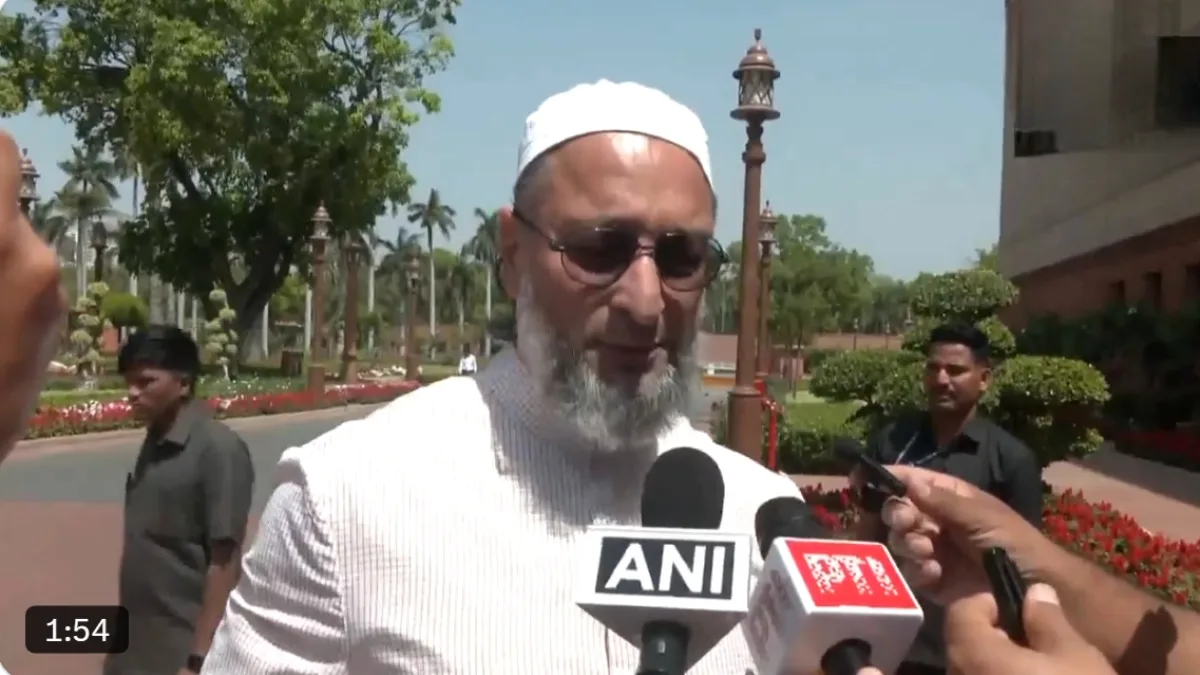
India witnessed a heated debate surrounding the Waqf Amendment Bill, introduced in Parliament in 2024.
The bill, which aims to reform the management of Waqf properties, has sparked controversy, with AIMIM chief Asaduddin Owaisi labeling it unconstitutional and a violation of Articles 14, 25, 26, and 29 of the Indian Constitution.
Why AIMIM Chief Calls the Waqf Amendment Bill Unconstitutional
Owaisi has strongly opposed the bill, arguing that it undermines the rights of Muslims and interferes with religious autonomy.
He questioned the inclusion of non-Muslims in the Waqf Board, drawing comparisons to Hindu Endowment Boards, which exclusively appoint Hindus. “If no non-Hindu can become a member in the Hindu Endowment Board, then why are you making a non-Muslim here?” he stated.
#WATCH | Delhi: On Waqf Amendment Bill, AIMIM chief Asaduddin Owaisi says "This bill is unconstitutional. This bill is a violation of Article 14, Articles 25, 26 and 29. If Chandrababu Naidu, Nitish Kumar, Chirag Paswan and Jayant Chaudhary will praise it then they are doing so… pic.twitter.com/g0RdkEw67r
— ANI (@ANI) April 1, 2025
Political Implications of Supporting the Waqf Amendment Bill
The AIMIM chief criticized political leaders such as Chandrababu Naidu, Nitish Kumar, Chirag Paswan, and Jayant Chaudhary for backing the bill.
He questioned their motives, suggesting that their support is driven by political calculations rather than public interest. “They are supporting it but what answer will they give to the public after 5 years?” Owaisi asked.
Constitutional Violations Highlighted by Owaisi
Owaisi emphasized that the bill violates fundamental constitutional rights, including equality before the law (Article 14) and the freedom to manage religious affairs (Article 26).
He argued that the bill’s provisions are discriminatory and infringe upon the autonomy of the Waqf Board.
Impact on Religious Communities and Waqf Properties
The bill has raised concerns among religious communities, with critics alleging that it aims to seize Waqf properties and diminish Muslim representation.
Owaisi described the bill as part of a broader agenda to undermine diversity and secularism in India.
Future of the Waqf Amendment Bill: A Divided Parliament
As the bill progresses through Parliament, its fate remains uncertain. While the ruling NDA government defends the bill as a step toward transparency and efficiency, opposition parties and minority groups continue to challenge its constitutionality and implications.
